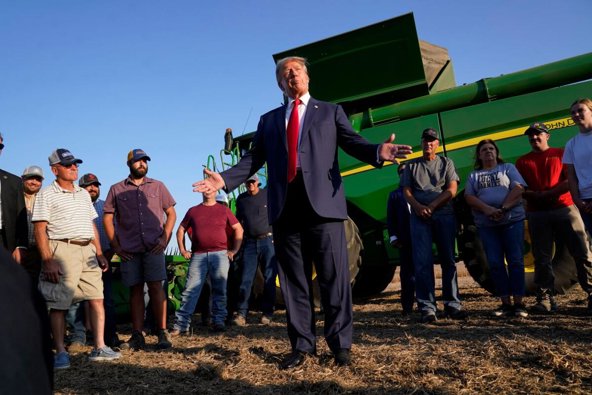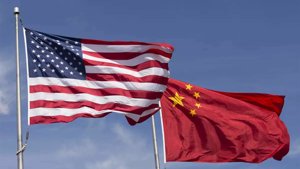
Farmers Challenge MAHA Over Pesticides
Farm groups warn MAHA's pesticide push could double food costs, as Trump officials promise support and science-based decisions.
The Trump administration’s Make America Healthy Again (MAHA) Commission has sparked tension with U.S. agricultural groups over its strategy to reduce children's chemical exposure through food, particularly its scrutiny of widely used pesticides. While MAHA aims to combat childhood diseases like obesity and developmental disorders, farmers fear that restricting crop protection tools will result in declining yields and soaring food prices.
President Donald Trump unveiled the MAHA report Thursday at the White House, joined by Agriculture Secretary Brooke Rollins and Health Secretary Robert F. Kennedy Jr. The report targets chemicals such as glyphosate and atrazine, listing them among compounds linked to adverse health outcomes. However, the administration emphasized that its approach will be guided by science and will not jeopardize American farmers.
Farmers Warn of Economic Fallout
Leaders from across the agricultural sector voiced concern that the report's language could translate into harmful policy. Elizabeth Burns-Thompson of the Modern Ag Alliance stated, “Crop protection tools are not only safe, they are essential to food security, affordability, and the survival of family farms.” The National Corn Growers Alliance called the report “fear-based rather than science-based,” criticizing its deviation from decades of EPA-backed evaluations.
According to the Modern Ag Alliance, eliminating glyphosate alone would increase input costs by 150% and more than double food prices. Citing Sri Lanka’s 2021 ban on synthetic pesticides, which resulted in a 50% drop in crop yields, the group warned that the U.S. could face a similar crisis if science is sidelined in policymaking.
Trump Administration Responds
President Trump reassured farmers that they remain central to his administration's priorities. “We love our farmers… and they are foremost in our thought,” he said. Rollins echoed that sentiment, calling American agriculture the heart of the MAHA solution. “We’re working to ensure our kids and families are consuming the healthiest food we produce,” she added in a follow-up statement from the USDA.
Health Secretary Kennedy, who has long criticized lax pesticide oversight, clarified during a Senate hearing that the administration would not endanger farmers' business models. “A million farmers rely on glyphosate,” he said. “We are not going to do anything to jeopardize that.”
Nonetheless, MAHA’s inclusion of chemicals like glyphosate in its list of concerns has stirred anxiety. Kush Desai, White House spokesman, emphasized that the report is the first comprehensive federal effort to review known and unknown drivers of childhood health issues. He reiterated that the movement is anchored in the “Gold Standard of Science.”
A Delicate Balance
Jennifer Galardi of the Heritage Foundation noted that MAHA appears to strike a difficult balance between health policy and agricultural economics. “Everyone should agree that the companies that manufacture products like glyphosate and GMOs shouldn’t have undue influence over the research,” she said, calling for transparency in future decisions.
Galardi also suggested the commission may initially focus on less controversial goals, such as improving nutrition and physical activity among children, before making any major policy shifts on pesticides. Meanwhile, farm leaders continue to push for representation in the conversation to avoid top-down mandates that could disrupt food systems.
As the MAHA Commission’s proposals begin to shape national health policy, its impact on agriculture will be closely watched. With food security and children’s health both at stake, finding common ground will be crucial to the initiative’s success.






